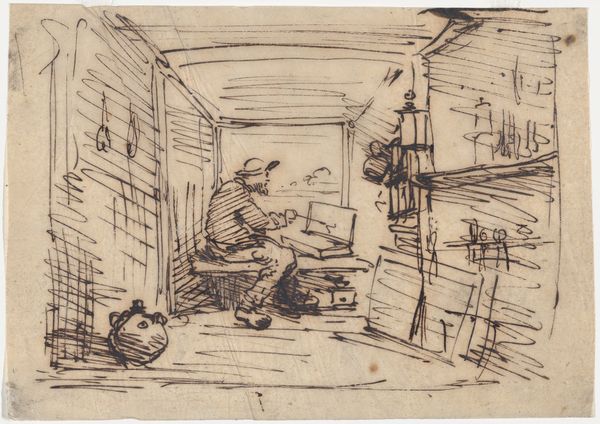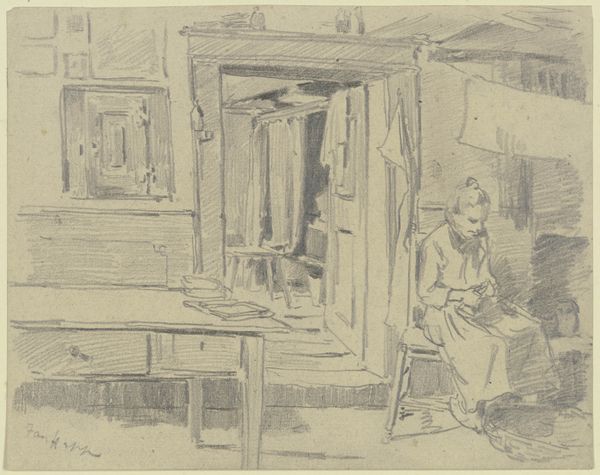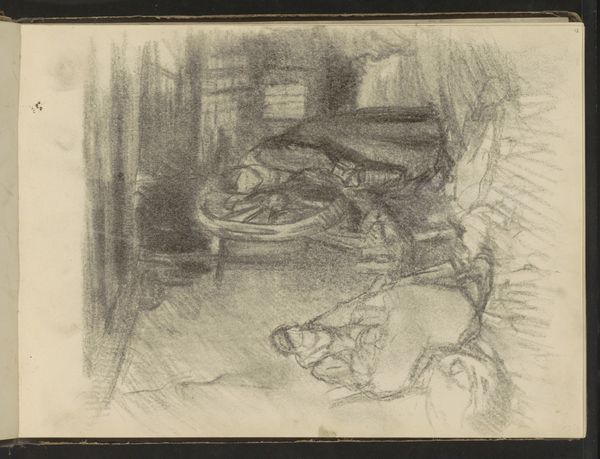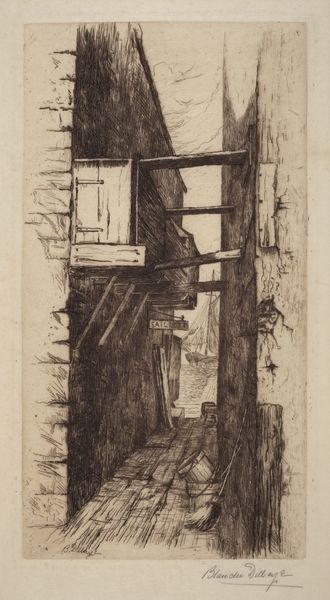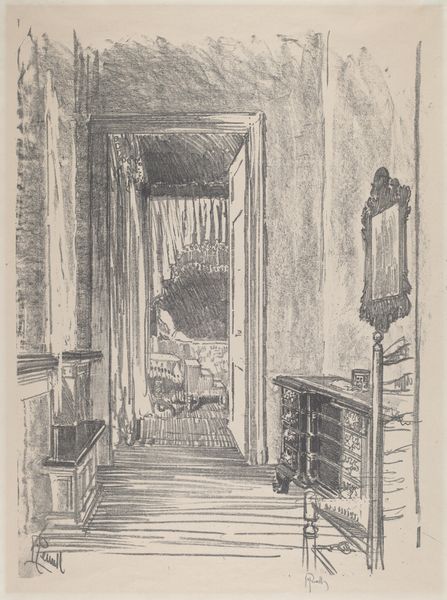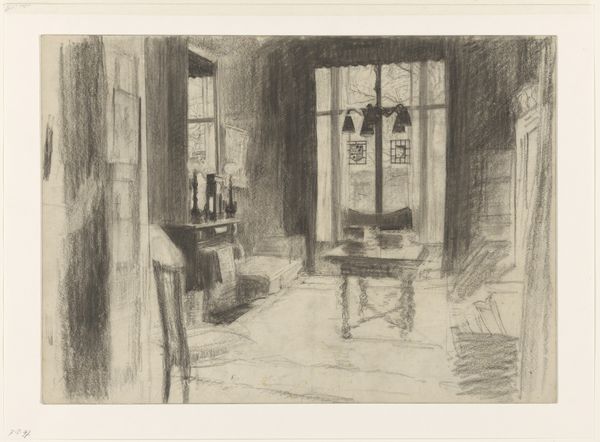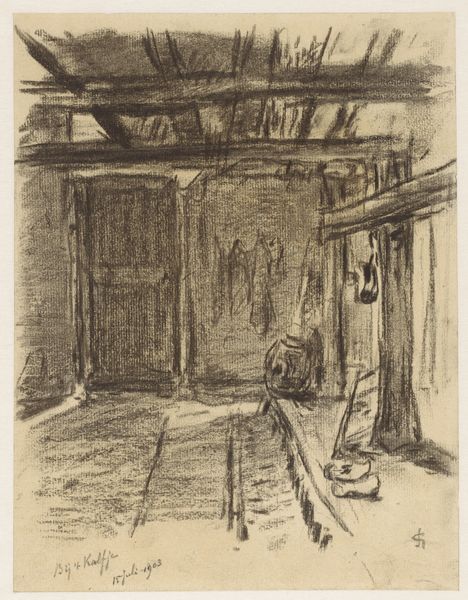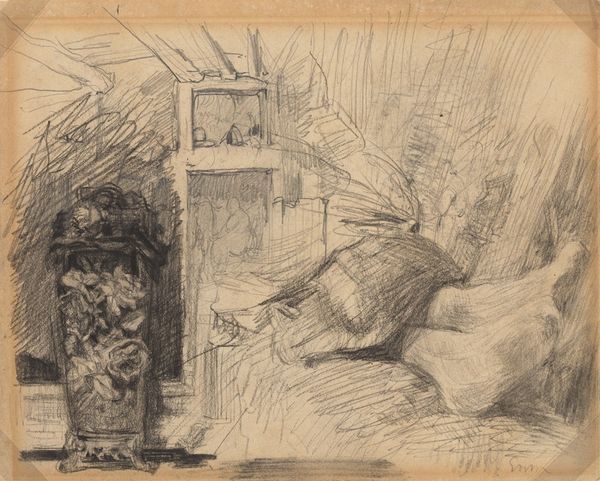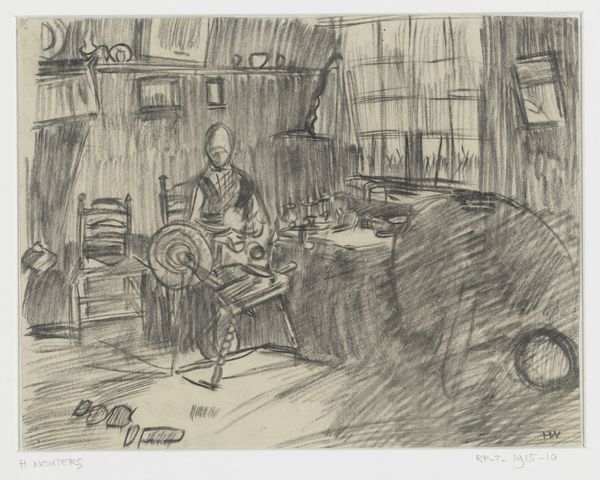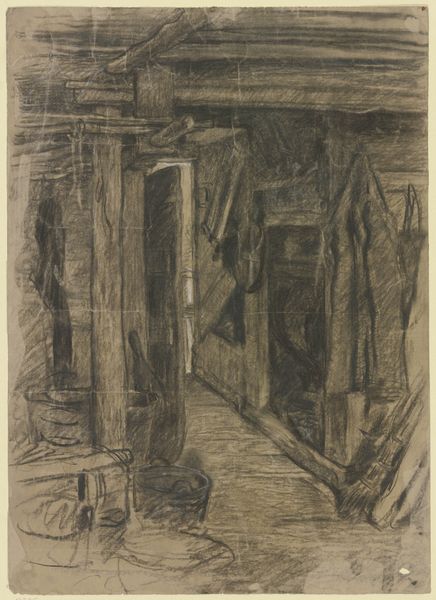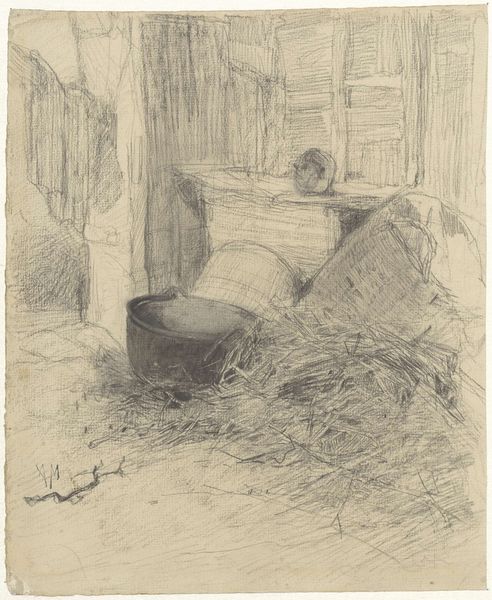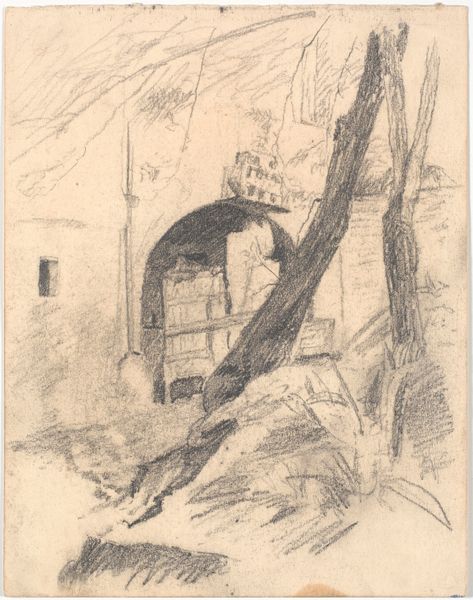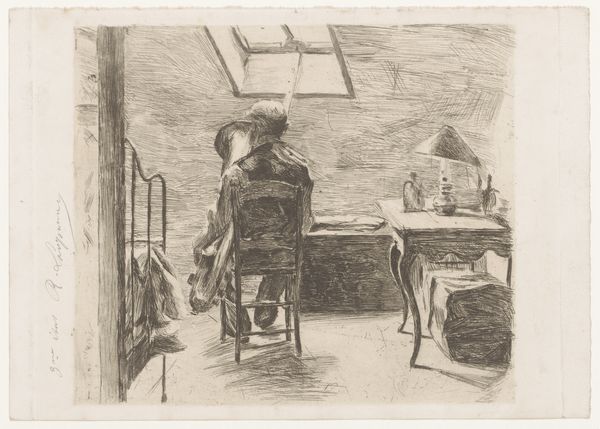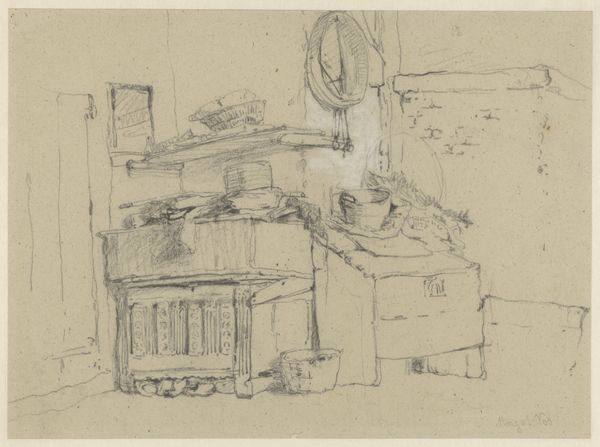
drawing, paper, ink, pencil, chalk
#
portrait
#
drawing
#
paper
#
ink
#
pencil
#
chalk
#
genre-painting
Copyright: Public Domain
Curator: This evocative work is titled "In the Studio," a drawing rendered with pencil, chalk, and ink on paper, believed to be by Ferdinand Balzer. Editor: The initial feeling is one of quiet industry. The subdued palette contributes to this impression, highlighting the subject’s solitude. There is a peaceful mood here. Curator: Precisely, it encapsulates the artist’s workspace, replete with easels, canvases, and an artist immersed in her craft near the window. Notice how the light subtly illuminates the scene and enhances the private and professional realms blending together. Editor: Yes, it is fascinating to consider this portrayal within the socio-political contexts for women artists during the late 19th century. Was this space one of the very few that allowed women to express and work professionally, a space for women to push back against societal limitations? Curator: Certainly, the image operates on multiple layers. On one hand, it can be interpreted as a study of light and shadow; however, when placed within its historical framework, as you mentioned, we understand its significance. Consider also that public art spaces like the ones available to male artists during this period were widely inaccessible to female artists, whose only refuge would be personal studios like this one. Editor: The studio becomes both a physical and symbolic space then. The sketch's rough texture and tonal nuances add another dimension, capturing not just the setting but also, I feel, the subject's psychological state. It conveys an emotional truth of creativity and labor. Curator: It also speaks to the evolving perceptions of labor and profession, particularly in the creative fields. As a genre painting, it depicts this reality while contributing to it; artists become working professionals, while society starts adapting and recognizing this novel positioning in both social and political circles. Editor: The work’s open-endedness invites reflection. Perhaps on the universal desire for creative space and intellectual autonomy, regardless of social constraints. The work speaks powerfully about women in professionalized artistic circles, both in historical and contemporary times. Curator: It certainly resonates on several levels. Ferdinand Balzer gives us an introspective and layered visual narrative that challenges as much as it enchants.
Comments
No comments
Be the first to comment and join the conversation on the ultimate creative platform.
